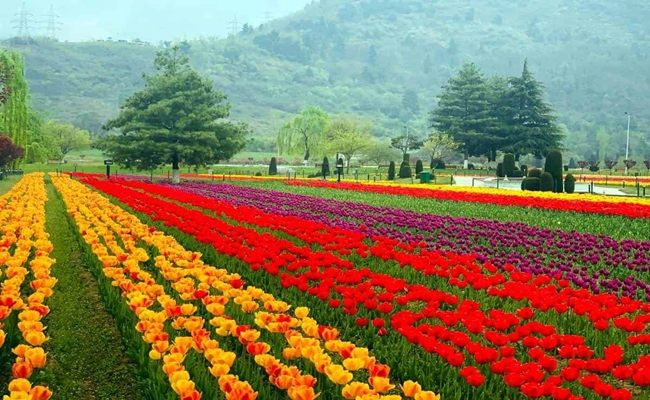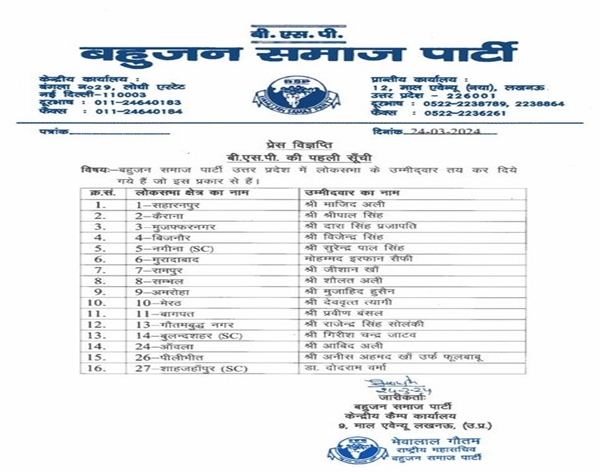In the Kashmir Valley, Tulip Garden, one of the biggest in Asia, was officially thrown open for the public today. According to officials, this year the garden will bloom with 17 lakh flowers of different varieties with a boast of five new flower varieties this year.
As locals and tourists jostled to get a glimpse of the iconic garden on the opening day, the officials said that in the coming days, the garden will be in its full bloom and both national and international tourists will visit the garden to cherish the beauty of tulips.
The picturesque garden, located on the foothills of the Zabarwan mountain range and banks of majestic world-famous Dal Lake – has multiple varieties of red, yellow and pink early blooming and late blooming tulip bulbs.
This year, the garden boasts an impressive addition of five new tulip varieties, bringing the total to 68 varieties. Moreover, the department has expanded the garden’s area by planting an additional two lakh bulbs, resulting in a record-breaking 17 lakh tulip bulbs spread across 55 hectares of land.
In addition to tulips, visitors can also feast their eyes on other spring flowers such as hyacinths, daffodils, muscari, and cyclamens, enhancing the diversity of floral beauty on display.
Established in 2007, the Indira Gandhi Memorial Tulip Garden is aimed to extend the tourist season in Jammu and Kashmir beyond just summers and winters. Initially starting with 50,000 tulip bulbs imported from Holland, the garden quickly gained popularity among tourists, experiencing steady growth both in terms of visitor numbers and tulip varieties.
Last year, the garden witnessed over 3.65 lakh visitors, including both domestic and foreign tourists, reflecting its increasing appeal as a tourist destination. Notably, it has also become a preferred filming location for various movie and video productions, with several film units choosing to shoot parts of their projects amidst the scenic beauty of the garden.
This year, the administration has directed the Srinagar Municipal Corporation to conduct sanitation drives and provide mobile toilet facilities. The floriculture department has also expanded the parking space by nearly 22,000 square feet, aimed to accommodate the influx of visitors conveniently.















